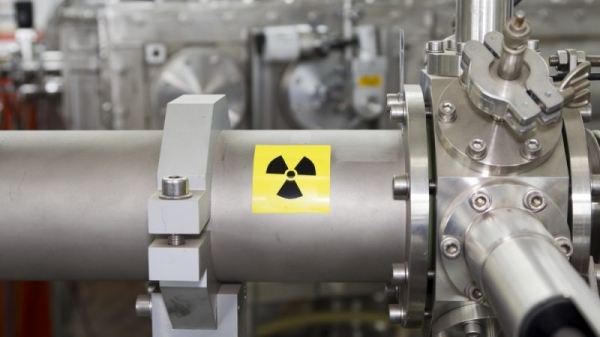French MPs pave way to dropping legal limit on nuclear in energy mix

Lawmakers voted in favour of doing away with the 50% legal limit on nuclear in the country’s total energy mix on Thursday as part of France’s larger efforts to build newer, more modern nuclear plants.
The vote took place in the Committee for Economic Affairs on Thursday as part of a broader legislative package that would see the building of six new nuclear European Pressurised Reactors 2 (EPR2). The first one of those, EPR2 is expected to be operational in 2035.
The decision still needs to go through some legislative hoops before it is finalised – but it signals a stronger-than-ever willingness by the government to revamp nuclear power across the country. The Senate voted in favour of getting rid of the limit altogether in January.
A 2015 law to promote green growth limited the proportion of energy France could get from nuclear to 50% of its energy mix by 2035. With 69% of the country’s energy coming from nuclear, according to official data, the measure was thought to encourage investment in renewables and paved the way at the time of the closing of France’s iconic and then oldest Fessenheim plant in June 2020.
Yet the recent energy crisis, greatly accelerated by Russia’s invasion of Ukraine, brought nuclear back to the fore as a reliable, controllable and low-carbon source of electricity. Nuclear energy is one of France’s three pillars to reach net zero by 2050, alongside investments in renewables and cutting down on overall consumption.
“We should not be ashamed of our pro-nuclear policy”, Maud Bregeon, the lead MP on the new legislative file, said on Thursday.
“Contemporary France never reached energy self-sufficiency”, Prime Minister Elisabeth Borne told a parliamentary investigative Committee on energy sovereignty on Thursday, accusing governments in power from 2000 to 2010 of “underfunding” nuclear technology.
She added that nuclear is crucial to “conquer energy sovereignty” in France and the EU.
EURACTIV revealed on 26 February that France would spearhead a ‘nuclear alliance’ with like-minded member states.
On Tuesday, 12 EU countries agreed to “cooperate more closely” across the entire nuclear supply chain and promote “common industrial projects” in new generation capacity and new technologies like small reactors.
Borne hinted at her “questioning” of Germany’s energetic strategy as the country sets out to close their last nuclear plants in April 2023.
Borne also insisted nuclear-induced hydrogen ought to be recognised as ‘green’ by the EU, acknowledging the Commission had shown encouraging signs and noted the necessity of EU electricity market reform to give long-term electricity contracts “a chance”.
(Theo Bourgery-Gonse | EURACTIV.fr)



